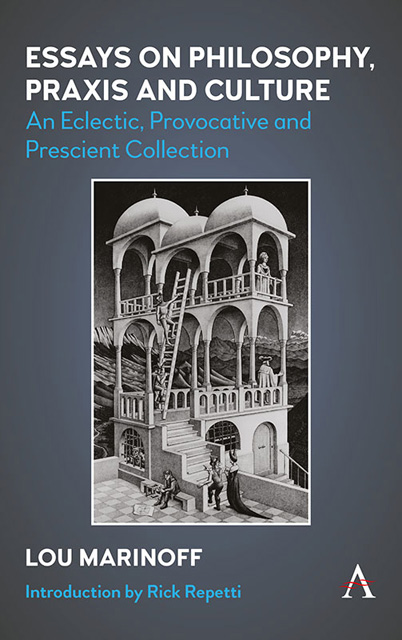Essay #3 - On Virtual Liberty: Offense, Harm and Censorship in Cyberspace
Published online by Cambridge University Press: 10 January 2023
Summary
This essay is republished by permission of the Philosophy Documentation Center.
The original citation is:
Marinoff, Lou. “On Virtual Liberty: Offense, Harm and Censorship in Cyberspace.” Inquiry: Critical Thinking Across the Disciplines 18, no. 4 (Summer 1999), 64–76. https://doi.org/10.5840/inquiryctnews199918418
Introduction
Since its landmark articulation in Mill’s celebrated essay “On Liberty,” his harm principle has served as a definitive framework for justification or repudiation of constraints on individual liberty. Mill’s signal distinction is between offense and harm; he vigorously asserts the right of the individual to offer the former, and staunchly defends the duty of the state to deter the latter. For Mill, virtues of civilization are cognate with individual liberties; the state and its citizens must tolerate any offensiveness that is also harmless. Mill avows, “That the only purpose for which power can be rightfully exercised over any member of a civilized community, against his will, is to prevent harm to others.”
This essay presumes that Mill’s harm principle should be applied to computer-mediated communication (CMC) but argues that said application encounters two overarching difficulties. The first is a widespread conflation of offense with harm itself. This vital distinction is willfully and wantonly blurred by assorted deconstructionists, biopoliticians, and dupes of their assaults on truth, freedom and reason. The second is the unenforceability of the harm principle in cyberspace itself. Conditions that would enable its virtual implementation could undermine rather than uphold the very liberties at stake.
Offense and Harm
Since we reckon among our foremost liberties freedom of expression—be it through speech, writing, publishing, recording, filming, broadcasting, or CMC—judicious application of the harm principle is essential in deciding any censorship issue. With respect to CMC, virtual offense must be distinguished from virtual harm and, consistently, the former must be tolerated and the latter proscribed. Admittedly, the drawing of such a distinction can be fraught with disagreement.
Mill presupposes two categories of insult: that which one finds disagreeable yet evitable, and that which one finds injurious yet unavoidable. Offense bears a subjective connotation; harm, an objective one. If you claim to be offended, the main evidence of the alleged offense is your claim itself.
- Type
- Chapter
- Information
- Essays on Philosophy, Praxis and CultureAn Eclectic, Provocative and Prescient Collection, pp. 55 - 68Publisher: Anthem PressPrint publication year: 2022

